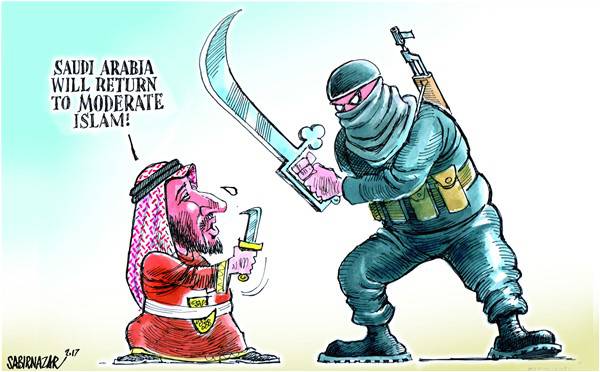
Tax big fish
Sir,
Addressing businessmen and others in Karachi on October 11, General Qamar Javed Bajwa called for broadening the tax base and bringing in financial discipline to break the ‘begging bowl’. The army chief has hit the nail on the head. The country needs taxes to survive, and for this purpose I have a suggestion to increase tax collection substantially. Military courts should try all smugglers and other tax evaders. The big fish among them should be executed immediately, while the small ones can be sentenced to imprisonment terms. The retail markets are full of smuggled items and other goods on which taxes have not been paid. By meting out stringent punishment to such people, the country will be able to stand on its own feet and will not need the IMF to bail it out. Moreover, Rs5,000 notes and prize bonds of large denomination (Rs5,000 and above) should be withdrawn, as they are used by smugglers and tax evaders for their nefarious purposes.
Shakir Lakhani,
Karachi.
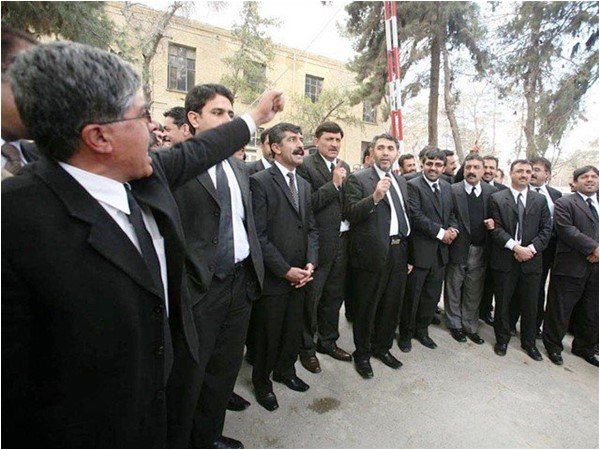
Sindh Bar Council
Sir,
I was cheated by my counsel who simply vanished after extracting Rs50,000 from me without moving a finger in the case, which he never filed. Consequently I reported this to the Sindh Bar Council and after putting me to the hardship of several attendances and almost none by the accused, the license of the counsel was suspended on Sept 19, 2017. Today when I again inquired after a copy of the Bar’s Order I was told the license as advocate of the lawyer had already been restored by the Bar, which amounts to shocking news and foul play.
The Bar also failed to take any action against the counsel to return the money even though they took cognizance of the counsel’s fraudulent conduct.
If this counsel had committed such a fraud with his client elsewhere, he would have simply been debarred for at least seven years if not for life. But here in our beloved country the law is turned into a quick business by lawyers who try to live off their wits and blackmail. Even the judiciary is unable to take action against bad lawyers and favouritism towards them has become the motto of the Bar. Unless strict laws against a lawyer’s conduct are made and enforced there is little hope of the Bars being of any utility. Moreover, such conduct of lawyers affects the dispensation of law and justice at the courts.
Mazhar Butt,
Karachi.
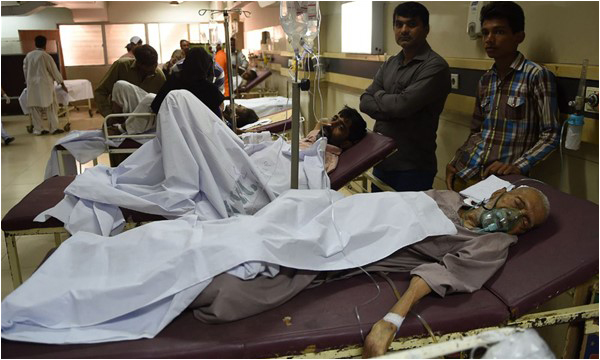
Blaming doctors
Sir,
It has become a tradition to place all the blame for problems in the health care system on doctors. A war-like situation is painted whenever doctors go on strike. Nobody cares to understand the problems they are facing.
There may be negligence or misconduct on the part of a few doctors, just as it is with any other profession, but to put the entire blame of a malfunctioning system on their shoulders is not only unjust but also condemnable.
The people who are quick to blame them seem to ignore one major point that pertains to paramedical and support staff working in government hospitals. Whenever patients and their attendants complain about doctors, everyone lashes out at them but when patients complain about the behaviour of paramedics, the entire healthcare machinery and others focus on hushing up the matter. This applies to staff including dispensers, nurses, technicians, assistants, laboratory attendants, counter boys and sweepers who quite often are the secret people in charge of hospitals.
Our people first need to understand the operational dynamics of government hospitals. Hospitals are run by three separate but interconnected bodies. First of all there is the administration run by a few doctors at administrative posts such as Medical Superintendent, Additional Medical Superintendent and Deputy Medical Superintendent. These doctors are dedicated to administration. They don’t tend to patients on the hospital premises. They are just responsible for implementing government healthcare policies or instructions as given by the higher authorities of the Health Department.
Second, there are practicing doctors, working in different departments according to the hospital’s capacity (Medicine, Surgery, Gynecology, Pediatrics, Cardiology, Ophthalmology). These doctors, either senior or junior, are the backbone of the healthcare delivery system. Unfortunately, they get are the focus when patients complain even though they are often overburdened.
Third, we have paramedical staff and support staff working as technicians, assistants, nurses, receptionists and sweepers. They have a role to play when it comes to serving patients according to their cadres but their influence in government hospital affairs is far above what their positions have been assigned.
Ordinary people, who cannot afford private care, have all experienced visiting government hospitals. I have visited different government hospitals many times. When I had to visit my hometown District Headquarter (DHQ) Hospital Chakwal for an eye checkup, a few incidents forced me to pledge to write on this serious issue.
As a journalist, I felt that the main focus of my research and analysis used to be international affairs because that is what I did my Masters degree in. But one perilous encounter with the staff at a government hospital made me want to write about this.
I was suffering from a viral eye infection that was contagious. I was told by my doctor that it could be spread to other persons at my office. For some legal purpose I needed a medical certificate from the Medical Superintendent, so I had to visit DHQ Chakwal at that time. There were long rows of patients at a few counters assigned to dole out the initial slip for checkups. I was surprised that slips for departments with less of a load such as Ophthalmology were also being issued at the same counter from where slips for overburdened departments like Medicine and Surgery were being issued. I tried to explain to the receptionists that surely there was some another way to manage, but their response was less than forthcoming. After a long struggle and wait, I finally got my slip for a checkup.
Then I visited the Ophthalmology Outpatient Department (OPD). As I expected earlier, there was no rush there. A few patients were waiting and on-duty doctors were checking them politely. When it came to my turn, I got a checkup by the eye specialist and he, too, advised me rest for seven days.
Now the only small thing left to do was get my slip countersigned by the Medical Superintendent. I was thinking that it would be a small matter. When I reached the administration block to meet the medical superintendent, I saw a few goons talking bitterly with patients outside her office. Later I came to know that they were paramedics. Meanwhile I observed that a lot of paramedics were going in with patients who they knew and were getting their papers signed. I did not tell anyone there that I was from the media. When my turn came I requested them to get my slip signed by the MS but they turned hostile and asked me to wait silently. I was eventually told that the MS was due for a meeting and my slip would be signed after she evaluated my case.
I waited for hours for her to return. Whenever I, myself, or other patients tried to tell the paramedics about our condition, they responded harshly. After a few hours I started to get unbearable pain in my eyes, so I left.
Our government is spending a lot of money on improving the conditions of hospitals. Their efforts are laudable but in my opinion there should also be some drive or campaign to improve the behavior of paramedics.
Jawad Akram,
@jawad5677.
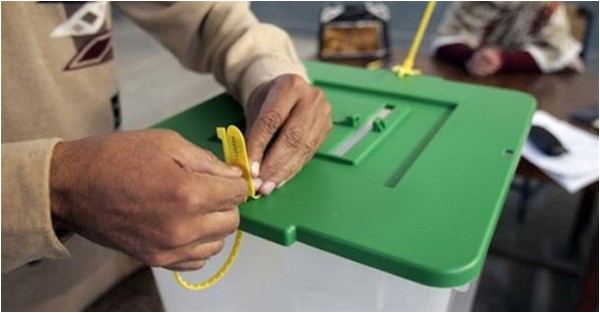
Next election
Sir,
There seems to be no party prepared to contest the elections of 2018. The ruling PML-N has been in disarray with the disqualification of Nawaz Sharif. Internal differences have arisen over who will be the next party chief. There are also family differences between two brothers (Nawaz and Shehbaz). Nawaz wants his daughter to head the party.
The arrest of the PPP’s Sharjeel Memon in a Rs6 billion corruption case has affected that party. The PPP has been giving the impression that they have been targeted. Then Agha Siraj Durrani, the speaker of the Sindh Assembly insulted voters, sparking a wave of protest on social, electronic and print media.
Then the MQM has split into factions (MQM-London and MQM-Pakistan). MQM-P is run by Dr Farooq Sattar. Mustafa Kamal started the Pak Sarzameen Party. The PSP is organizing its district base throughout Sindh. It has held public gatherings in big cities.
The PTI seems to be well ahead of all other parties and is considered a hot favourite.
The Jamaat-e-Islami’s Ameer Siraj Haq is trying to reinvigorate the party as it was in the times of Qazi Hussain Ahmed. Currently, the PTI and JI have a coalition government in KP. Efforts are underway by religious parties to revive the MMA to contest and field joint and consensus candidates in 2018. If the MMA is revived the JI may part ways with the PTI but if not these two parties may renew their alliance in KP, Sindh, Punjab and Balochistan to get maximum seats to form the central and provincial governments.
The PPP has lost its vote bank in Punjab, KP, Balochistan and the PTI has become the second biggest party in Punjab and the leading party in KP if we go by the results of the last election. The PTI won NA-4 recently.
The PTI has been pursuing an expansion policy and they have a presence in all four provinces and Azad Kashmir. They have well-known political figures. According to their plan, they want to contest every seat in every province of Pakistan.
The smaller parties such as the JUI, ANP, PML-Q and PML-F are not in a position to make a clean sweep of the election but they may get some seats wherever they have influence such as the JUI in KP, the PML-Q in Punjab and PML-F in Sindh.
These parties will join the coalition of any party that gets the clear majority to form the government as they have demonstrated in the past. Take the example of the MQM, JUI and PML-F. Although the JUI is a religious party, it has remained a coalition partner of the PPP and currently with the PML-N-led government. Similarly, the MQM has remained a coalition partner of the PPP.
The PPP is not organised in the Punjab but it is most likely to take seats in Sindh especially in areas where it has more influence such as home constituencies where PPP-backed candidates have been winning for many years such as Larkana, Sukkur, Shikarpur, Jacobabad, Dadu, Nawabshah.
The PTI should have strong candidates in Sindh where it can win people over if it stresses the corruption of the PPP. But ironically, in Sindh the PTI will have to make a choice. It will have to see if it wants to approach electables such as feudals, landlords and tribal chieftains who make up of 90 percent of the MPAs in Sindh.
Finally, this entire exercise all depends on the Election Commission of Pakistan holding free, fair and transparent elections by using electronic voting machines and biometric machines. The army may be deployed in and outside the polling stations so that law and order situation may be improved. The polling stations may be linked through a GIS system so that polling locations may tracked.
Abdul Rahman Malik,
via email.
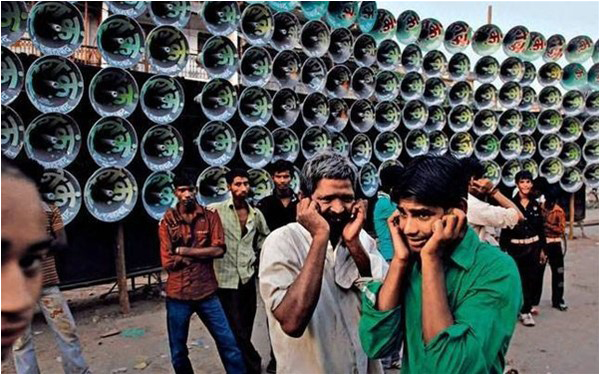
Pressure horns
Sir,
Young boys and men use pressure horns with their trucks, motorcycles, buses and even in some cases bicycles, which create noise pollution in residential areas. The traffic police appears to be indifferent to the use of pressure horns in prohibited areas. Noise has an adverse effect on health, on the ears, the cardiovascular system. It also interferes with sleep.
The main reason these men can freely and boldly exhibit such behaviour is the absence of strict punitive measures against offenders. I therefore suggest that the police must look into the matter more responsibly and honestly. Lastly, the Road Transport Authority should devise ways and means to control noise pollution which is slowly becoming the norm.
I hope the authorities shall pay attention to the suggestion.
Maha Abbasi,
University of Karachi.
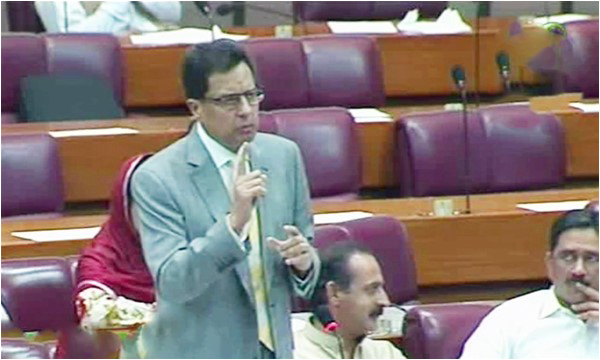
Bigoted son-in-law
Sir,
I am shocked and outraged by the rabid rant of the former first son-in-law in, of all places, Parliament. Irrespective of his personal beliefs, this utterly uncalled-for bigotry, aimed at one minoritized community, he has infringed on and violated the religious sensibilities and human rights of every minority—and majority—citizen with religious and constituent representation, that too, within the legislative precinct of Mr Jinnah’s obviously irrelevant, “You are Free…” nation. Every citizen who is subjugated, marginalized, dispossessed or not yet wantonly murdered (many of them Muslims by belief) in the name of Allah, the Most Beneficent and Merciful, is today more shaken and uncertain of the future in this country.
If this outburst could happen in the House where constitutional rights, safeguards and guarantees of every citizen of Pakistan, irrespective of colour, caste or creed, at least on paper, are deemed to be sacrosanct, consider what regularly happens outside! For far less and on almost invariably unsubstantiated evidence good people have been murdered. In a nation of murderous “parochial passions” (General Bajwa’s FPCCI speech) this was pure incitement and we know the invariable result. Mashal Khan is still very fresh in our minds. To add insult to injury it comes from a legislator who is, even if only by familial association, indicted for unparalleled corruption. Does this classify as either Saadiq or Ameen? Isn’t it time the law of the land stepped in to curb this sacrilege and the destructive path the nation is taking or will conventional (in)justice take over?
Dr Mervyn Hosein,
Karachi.

